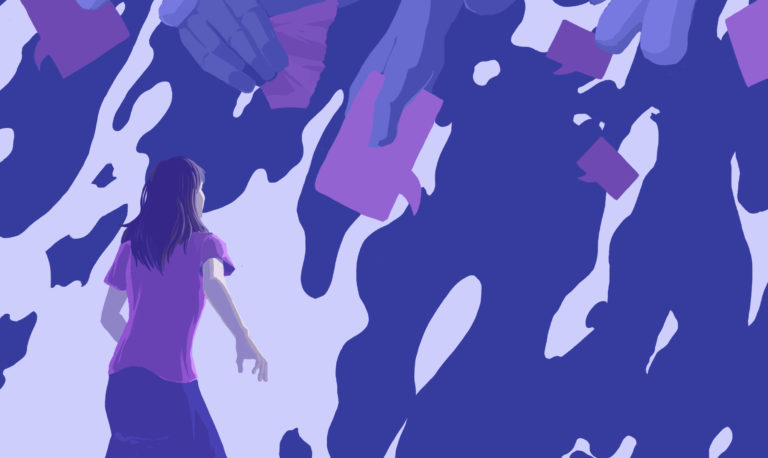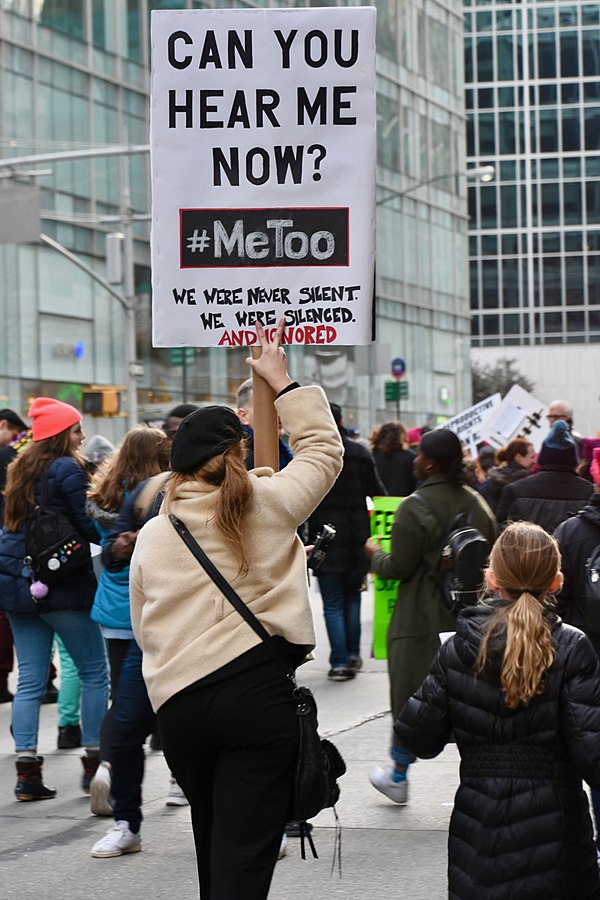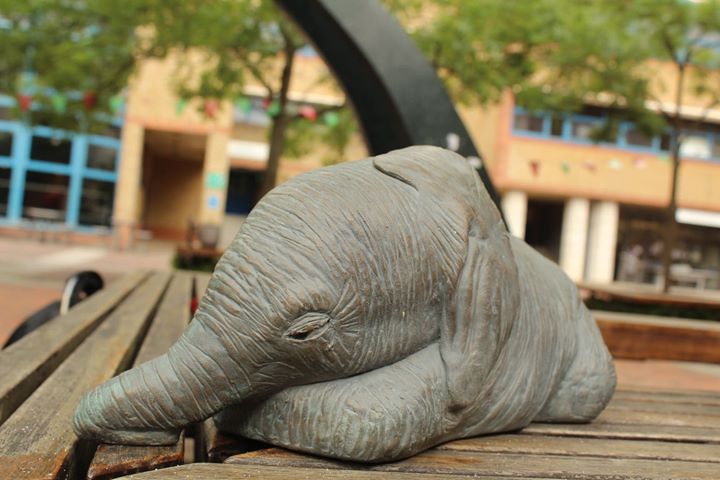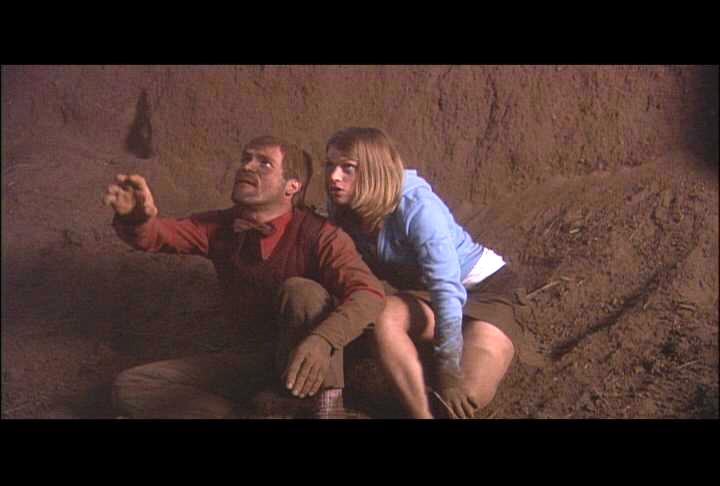aka the Elephant in the Room that people may dress up and be sickly sweet to, while they stab behind their back and behind closed doors.
Sorry that might sound harsh, but the fact that some people choose to put others down, be aggressive towards them, treat them of lesser value, and / or abuse them because of the colour of their skin, their ethnicity, their gender, their disabilities, their sexuality … etc really makes my blood boil, and leaves me generally feeling sick. Having said that, Representation and Representational Problems is a conversation we need to have to instigate change, and part of doing that is sharing our stories, despite how uncomfortable that might be. Admittedly, that was not something I realized until I became an adult. I grew up in a blissful world where that equality existed, having grown up in a family that was a mix of the arts and science with people from around the world sharing our holiday dinner table and where my parents saw each other as equals (which of course they were). It never occurred to me that that was not the norm (at least in Canada – I had seen racism and sexism in my travels), and that some people would think themselves better than another because of their skin colour, religion, gender, sexuality, or able-body. Or at least it didn’t until I began working in the media arts and technolgy.
As I set off on a walk with my 17-year-old neighbour this past weekend to talk about her aspirations in the media arts, these were all things we talked about as we explored the challenges along with the rewards of the industry she is setting forth into.

Importance of Characters Whom Young People Can Relate to
My neighbour is a visible minority in Canada, and so while we talked about the importance of crafting stories that you are passionate about, we also talked about the importance of increasing representation within those stories.
I told her how when I pitched my first kid’s TV series, a Canadian broadcaster told me we couldn’t do a co-production with another country as Canadian kids would not relate with children that looked and sounded different from them. Having grown up on stories from around the world and loving learning about different cultures through stories, I was at a complete loss that this was a Canadian broadcaster’s believe in a country that is made up of people from around the world. My young neighbour then told me that she’d grown up in Canada never having seen Filipino culture (her ethnic heritage) represented within the stories she consumed.
That’s a problem, as while it is great to learn about different people and cultures through your stories, if you never encounter someone like you, you feel at odds with others and a bit alone. As mentioned in Kateryna Barnes’ article on the game Kisima Innitchuna (Never Alone), stories are also an important way of connecting with your cultural roots and sharing that culture with future generations.
While not a visible minority, I do get that sense of feeling alone and at odds with others from a disability perspective. I am dyslexic, and I can’t help but wonder if I’d met a dyslexic kid in my stories growing up, if that might have helped me with my confidence in embracing how my mind works differently at an earlier age, rather than feeling I was not as academically capable as my peers. Instead, when I was younger and I encountered people with a disability in a story, they were usually negatively depicted, teaching me at the time that this was something I should hide, as media treated disability as though it was something to be embarrassed of.
For all these reasons, I am glad to have conversations like this with my young neighbour, and look forward to seeing how she addresses this in her career. I am also glad to see people like Nicole Kang addressing it on Elementari, an animated storytelling and game development platform targeted to kids and schools. If kids can put characters that they relate to in their stories and games, then they can help to start to demonstrate for others the storyworlds they wish to see.
The Dark and Unwelcoming Alley Out in the Open in the Media Arts, Tech & Game Studios
While lack of representation or representation only as evil, weak, and broken characters is destructive to the psyche and identity, what really makes my blood run cold and what I needed to forewarn my young neighbour about is the very real culture of misogyny and sexual harassment. I did not want to terrify her, but I did want her to be aware of the dangers in the media arts (and particularly game design) in order to keep herself safe.

Trigger Warning
I have been very lucky in that I have never been raped, but I have found myself in dangerous situations and I have found myself in psychologically abusive situations by people I thought were my friends. While I didn’t go into all of this with my young neighbour, before you read on, I should warn you that this will not be a pleasant read and may trigger things, so stop here if you need to.
As much as I hate to term it this way, I was ‘eased’ into this culture of misogyny and sexual harassment by the film industry. In that world as a young writer and actor, I learned never to trust that a business meeting was a business meeting and that a man wanting to partner with me wasn’t just them trying to sleep with me. I’m not saying that egotistically, it was just a reality, and not one that helped build my confidence in myself as a young creative. As an example, a talented director chased me for months for a meeting and when I agree and then accept an invitation to a screening party at his house with his friends, I arrived at the screening party to discover no friends and no screening. That was the night a director tried the ‘casting couch line’ on me. He was a documentary director, so I am not sure what I was to be cast as – a victim? Then there was my producer friend, who I discovered on more than one occasion using me as a lure for unstable, stalker men (I am not embellishing here – these men stalked me for months) he wanted to do business with. One of those men, I made the mistake of working for in a remote ferry-in ferry-out community as a writer and a host, before realizing that he was very unhealthily and dangerously obsessed with me. I will be forever grateful to my friend Tristan for insisting on accompanying me when the producer announced he’d only pay me if I came to pick up my pay cheque. I should add that there are some amazing men in the industry, like Tristan, Cam, and Richard who have always looked out for my safety and well-being, and there are some women that contribute to the problem of the misogyny and sexual harassment. With the latter, I am remembering one film festival when a powerful married man in the film industry was rather inappropriately and boisterously hitting on, which I dealt with by falling on my safety net of turning that into a joke. Meanwhile I learned a number of the women in the room thought I was to blame. A tip of my hat at Richard, Cam, Joanne, and Katrina for standing up for me and telling them otherwise, as well as for helping to safely extract me from the situation.
All of that though was just a warm up act to what I encountered in the tech and peripherally gaming industry in 2007. There I found myself in a world in which the few of us women that were there were treated like sexual play things to use and abuse both for our minds and our bodies. On the surface the parties were fantastic with free food and booze flowing, but then you’d see how the young women were being treated as toys and someone would turn to you and ask you (in all seriousness) for a lap dance. In those early days, the same individual that asked for that lap dance, publicly claimed mine and Megan’s ideas as his own and that Megan and I were ‘working for him’ on an idea of ours that we’d entered into a partnership with his business partner. On one of my calls to their office to try and get some tech answers for that project, after getting nowhere with the lap dance requester, I asked for his business partner’s cell number so I could talk to him, and I was then put on speaker phone to their entire office and told who was I kidding, I had the partner’s number, as I was sleeping with him. I was not sleeping with him, but I am sure there are many in the tech community who still think thats how I got started there. That then lead to an uncomfortable conversation with the business partner, in which he confirmed with those that had been in the office that day that I had indeed been put on speaker phone to the entire office. Despite that, I still had to deal with the lap dance requester on the upcoming project, and when he started aggressively bullying me, the business partner did nothing when I asked him to step in. That was the first time I’ve ever asked for help in such a situation, and as someone who only asks for help when I really need it, I could not believe that no help was given. Another disturbing memory from this time was when a certain large tech company hosted a retreat that began with a drunken and bound to be trouble series of images all hashtagged on the bus ride up, including all the men lined up and peeing at the side of the highway. It was when they reached the camp that things went disturbingly badly. There were only a few women there, and after they reached the camp, one of the men shared one of the woman’s bare breasts on instagram with the trip hashtag. I commented and said that was not cool. The response was something to the effect of “Lighten up, I didn’t share her face.” That didn’t matter, as aside from other reasons, there were so few women there that it didn’t take too much figuring out as to who was in the photo. Thankfully the one female leads at the company stepped in a few minutes later and shut things down, but I still shudder to think what the situation might have been at that retreat for the few women that were there. There was good that came out of all this though, and thanks to few strong women leaders in the industry – I think of Maura Rodgers, Megan Cole, Rebecca Bollwitt, Monica Hamburg, and others, we said enough is enough and began to catalyze change. It wasn’t easy though, and I am sure it still has a long way to go.


Just because the misogyny and sexual harassment may be less visible, especially since #MeToo, don’t kid yourselves – the problem is still there. I got a very disturbing reminder of this in the summer of 2018, when I stayed too long at a party of a guy that I trusted and thought was a friend. While that night a married man tried something inappropriate and unasked for with me, it was the friend that disturbed me – attempting to remove my top and that of another woman’s and starting to ask me ‘would I rather’ questions that involved gang rape. The glimmer of hope here was that a young kid, who worked for the two older men stood up for me, and told the aggressor that wasn’t cool.
I extracted myself from the situation in the way I always do, with humour. However, that night has disturbed me ever since, and I’ve found myself avoiding events in that world. Mainly I think, because that was someone I thought was a friend, and the night clued me into just how insidious the aggressor had been for years, doing a number of things to constantly put me down to myself and others. In thinking back, I realize this started with me standing up to him and offering an alternate viewpoint on a panel at a film festival. A disturbing element of realization that I’d been in an insidious and emotionally abusive relationship for years was that he’d been actively putting me down to others through the entirety of my attempting to put my life and career back together following my two accidents that left me learning to live with chronic pain and many new realities. I share this last bit, as the last seven years since the first car accident has opened my eyes up to those that prey on those with disabilities and other vulnerabilities, including this man who I thought was my friend and should have been there to help me back up, rather than further push me down and work to keep me there.
Creating Change
Now, while I didn’t share all of that with my young neighbour, I did share some of it, including the recent story, as I feel if change is going to happen, we need to talk about these things, and for her, I need her to be forewarned and forearmed so that she can stay safe.
Towards the end of our walk we did touch on the fact that she needed to be particularly careful in the game industry. I know for myself, I’d be very wary of entering a mainstream game studio for the reasons shared here and how unhealthy and misogynistic an environment that might be for me. That is part of the problem though, is that if women don’t feel safe in these spaces it makes it difficult to change those ecosystems.

I think for myself, that is why I finally started building my own teams and finding new ways of creating and producing what is in my imagination, as oppose to waiting for the permission of another to do so. I am not sure whether games will be in that mix for me (although there are a few that have been dancing through my imagination), but certainly there will be more immersive media, in which I hope to continue work with talented and supportive individuals (whether women, men, or those who identify in a different way). I hope that my young neighbour is able to do the same, and who knows, maybe at some point that will involve us creating together.
References
Barnes, K. (2019, July 24). Agniq Suannaktuq and Kisima Innitchuna (Never Alone). First Person Scholar. http://www.firstpersonscholar.com/agniq-suannaktuq-and-kisima-innitchuna-never-alone/
British Dyslexia Association. (2018, February 11). See Dyslexia Differently [Video]. YouTube. https://www.youtube.com/watch?v=11r7CFlK2sc
Jenson, J. & de Castell, S. (2016) Gamer-Hate and the “Problem” of Women: Feminism in Games. In Kafai, Tynes, & Richard (Eds.) Diversifying Barbie & Mortal Kombat: Intersectional Perspectives and Inclusive Designs in Gaming. Pittsburgh PA: ETC Press.
Innocenceii. (2020, June 8). Why YOU Would ???? at Being a Main Character [Video]. YouTube. https://www.youtube.com/watch?v=1wOEnUtxO7Q
Never Alone – Kisima Ingitchuna. (2014, August 14). Never Alone – Iñupiaq Perspectives – Joseph Sagviyuaq Sage [Video]. YouTube. https://www.youtube.com/watch?v=BK1IsVEjZKE
One Down. (2020, October 1). Filipinos in Entertainment | Breaking The Tabo | Episode 1 | One Down [Video]. YouTube. https://www.youtube.com/watch?v=9jusUSUTfm4
StoryToGo. (2020, March 15). Creating Diversity in Story Characters – a Chat with Elementari’s Nicole Kang [Video]. YouTube. https://www.youtube.com/watch?v=MxmLNc2Q934

